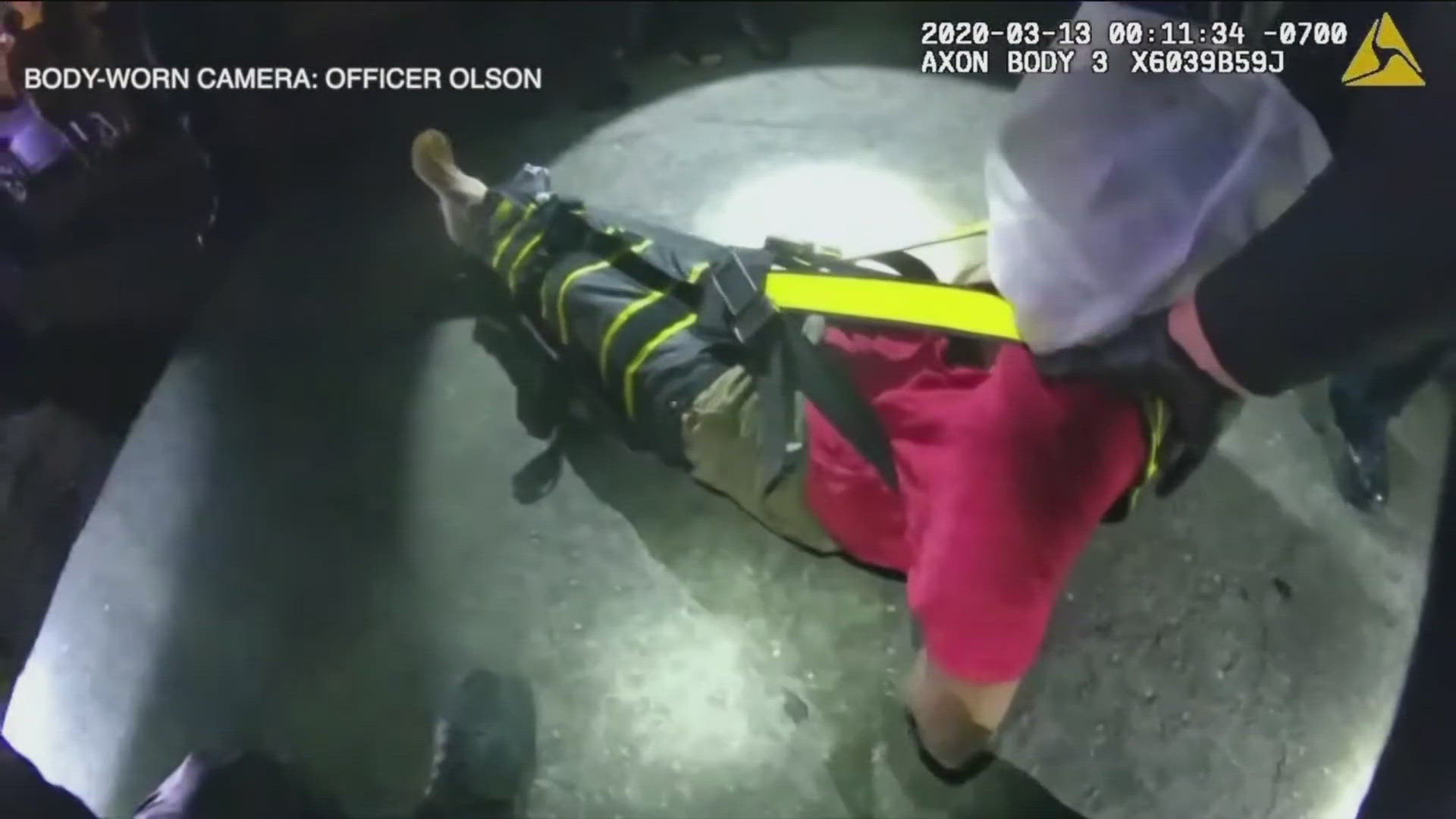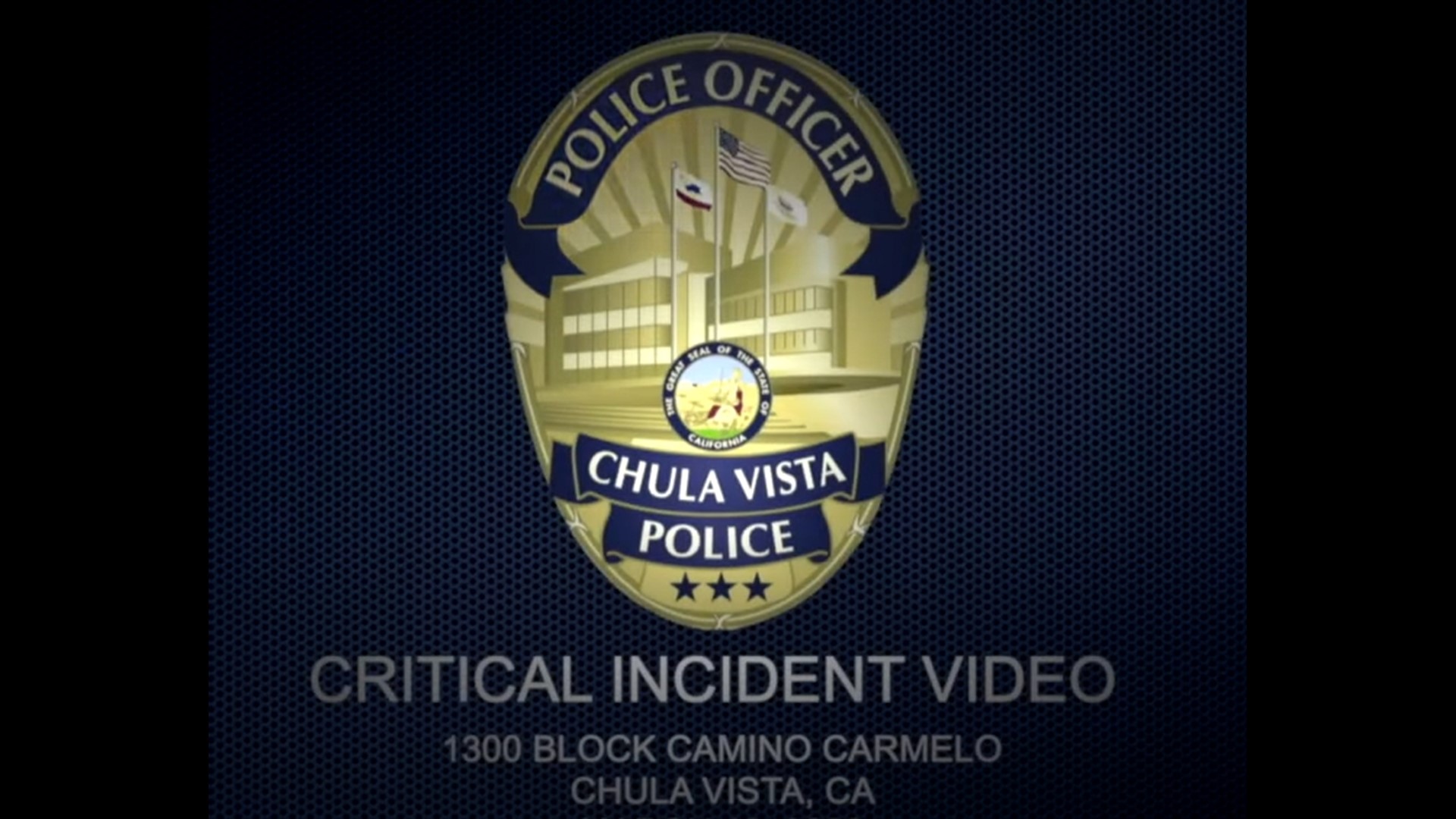CHULA VISTA, Calif. — The wrongful death trial of 56-year-old Oral Nunis who died during a March 2020 interaction with Chula Vista Police started Tuesday, April 16 in federal court.
Nunis' children and ex-wife now look to hold the Chula Vista Police Department and several of the officers accountable who responded to the 911 call from Nunis' daughter, Kimone, on March 13, 2020, while her dad was experiencing suicidal ideations.
"I'm mad at everybody," Kimone Nunis told CBS 8 in an October 2023 interview about her father's death. "I'm mad at the officers because human nature is to talk to people. And they never chose to do that. At no point was he threatening anyone."
Just over four years since Nunis' death, and nearly three years since Kimone Nunis, her sisters, brother, and step-mother filed a wrongful death lawsuit, a jury will decide whether or not the Chula Vista Police Officers who responded to the late-night call killed Nunis.
The 911 Call
At the time of his death, Oral Nunis was in the midst of a messy divorce. On the day of his death, Nunis complained of heart pain and was taken to the hospital where doctors prescribed him anti-anxiety medication. The medication, however, did not calm Nunis' nerves.
Kimone Nunis told CBS 8 that she woke up the night of March 12 to her father screaming in terror. Kimone, a 13-year active veteran in the Navy who works in crisis situations, told 911 operators that her father was trying to jump from her second-story window.
Kimone and her husband managed to calm her father down. Oral Nunis sat in the doorway of his daughter's upstairs bedroom when Chula Vista Police Officers arrived on the scene.
Body camera footage shows the officer pulling out handcuffs as he approached Nunis. Nunis told the officer that he would go with him but he didn't want to be handcuffed.
The officer insisted it was department policy.
Kimone Nunis said the officer's tactics only worsened her father's agitation.
"He didn't say who he was. He never stopped and tried to defuse a situation or just introduce himself and say, 'Hey, I'm here, is everyone okay?' He just kept saying, 'It's policy,'" she said.
As seen in the video, Mr. Nunis attempted to stand up as the officer tried to handcuff him.
Suddenly, the officer's body camera shut off.
It resumed 34 seconds later.
During that gap, police say Mr. Nunis ran outside where the officer tackled him.
Warning: This video contains graphic and violent content. If you are sensitive to graphic material or find such content offensive, please refrain from watching.
The Altercation
Outside, officers struggled with Nunis. Several officers placed their weight on him as they tried to pry a prescription pill bottle for anxiety from his hands.
Kimone Nunis tried to approach her dad in order to calm him down.
"I tried to go up and [the officers] started screaming at me," Nunis said to CBS 8 during her October 2023 interview. "And they were screaming at my husband. And I was just trying to get to my dad. Eventually, I made my way to my dad and I just lay next to him. And I just talked to him because whenever I talk to him he would get calm. I just kept begging him to stop."
The footage shows Kimone Nunis squatting down next to her father, stroking his face to soothe him as she had during recent episodes.
"God bless you," Oral Nunis said to his daughter. "I'm going to heaven."
As several officers knelt on Mr. Nunis, other officers pulled Kimone Nunis away.
Officers then handcuffed him and placed a maximum restrain device on Mr. Nunis called the WRAP (Wrap, Restrict, and Protect). As Mr. Nunis grew more disorientated and he began to drool, an officer placed a spit sock over his head.
Nunis soon became unresponsive. Despite their best efforts, paramedics were unable to resuscitate Nunis. Doctors pronounced him dead at the hospital.
The City's Defense
In court, attorneys for Chula Vista will look to prove that officers followed department policy during the altercation and that Nunis died from a medical condition, not from the restraints or use of force that officers used on him.
Chula Vista looks to the autopsy report as a partial explanation for Nunis' death.
"Based on the information given, it is possible the decedent had some type of undiagnosed psychological disorder that altered his mental state enough to agitate him to the point of an excited delirium-type scenario where he would be susceptible to a sudden cardiac arrhythmia during the post-excitement phase of his heightened or altered sensorium," read the report before concluding, "the cause of death is sudden cardiorespiratory arrest while restrained in police custody, and the manner of death is undetermined."
And while the autopsy provided certain factors that caused Nunis' death, there is one underlying issue that defense attorneys will not be able to use from the report: Excited delirium.
In recent years, medical professionals, as well as state lawmakers have poked holes into the medical theory. A CBS 8 investigation discovered that Excited Delirium in at least 15 in-custody police deaths since 2015.
The American Medical Association, the American Psychiatric Association, as well as other physician groups have denounced it. More recently, the National Association of Medical Examiners and the American College of Emergency Physicians have come out against the condition after years of support.
In addition, in January 2024, the use of excited delirium as a condition can no longer be used in court. The condition, long championed by local UCSD doctors, Gary Vilke and Theodore Chan, was outlawed in California and medical professionals, law enforcement, and municipal attorneys are now forbidden from using the term to explain the cause of death for those in police custody.
Now, instead of using excited delirium, court filings show that attorneys for Chula Vista will rely on the fact that police officers followed department policy during the March 13, 2020, call for service and that Nunis' failing health and mental state caused his death.
CBS 8 will continue to follow the trial.


